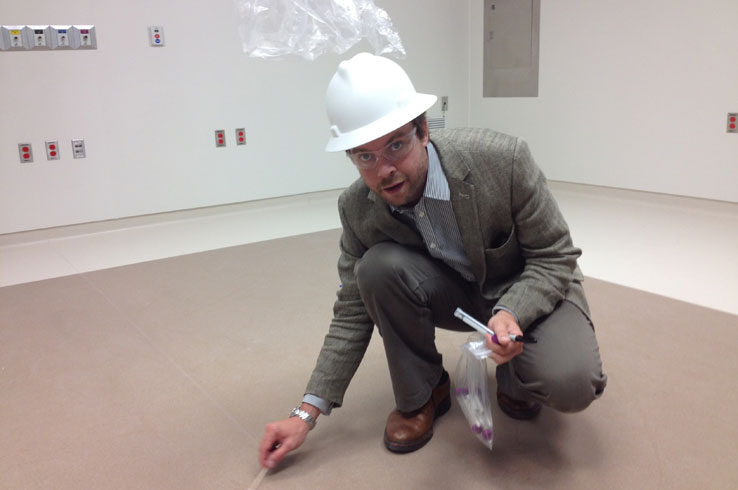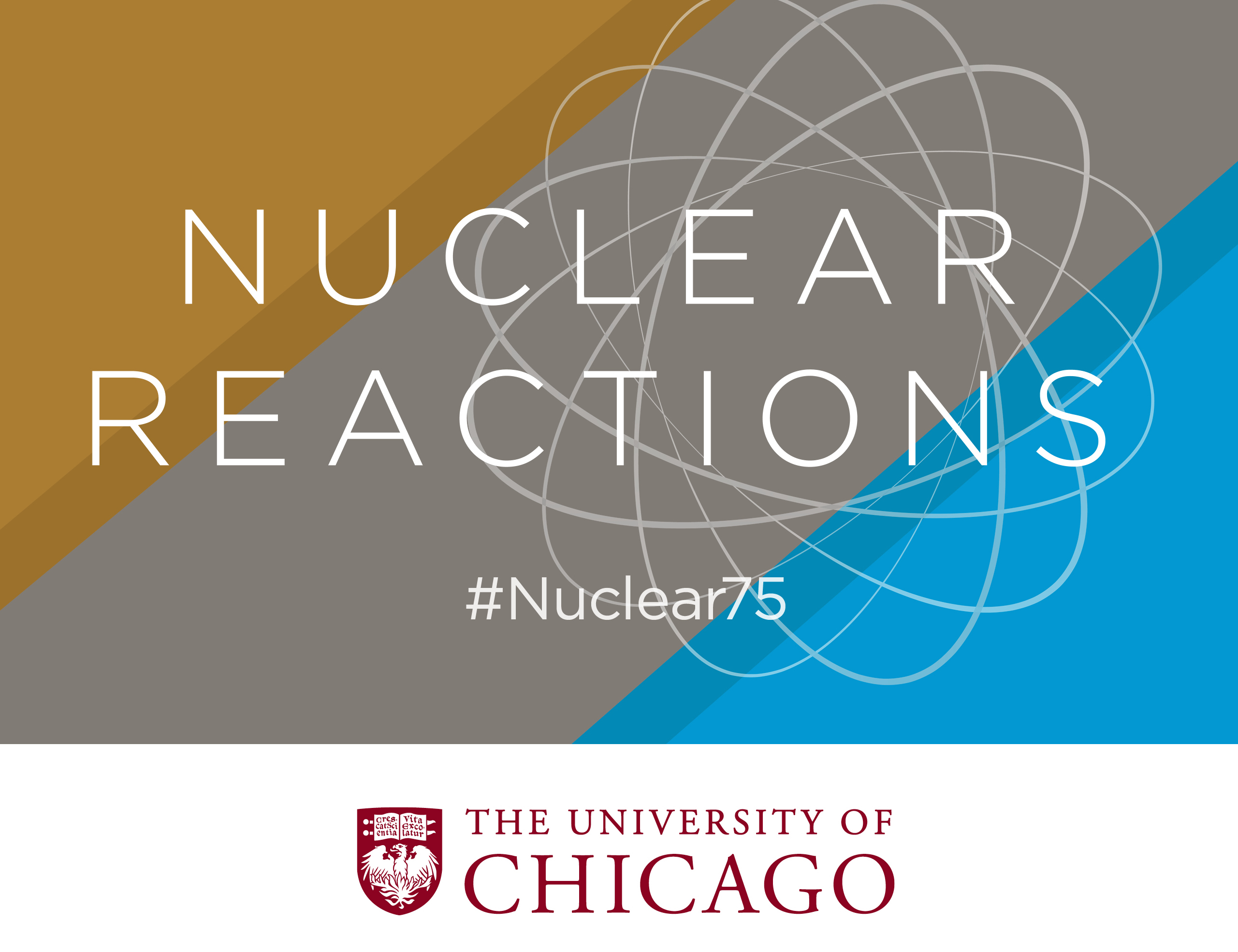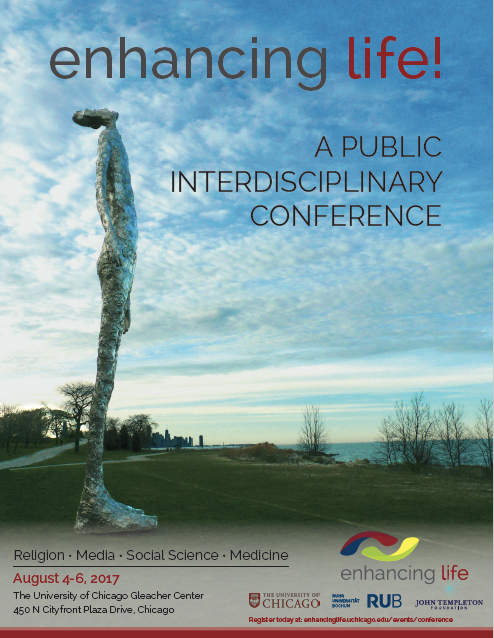What's a marine ecologist who specializes in environmental microbiology doing at the University of Chicago's New Hospital Pavilion as it prepares to open in early 2013? Change everyone's perception of bacteria, that's all.
“Ninety-nine percent of bacteria are good—even in a hospital,” says Jack Gilbert, assistant professor of Ecology & Evolution at the University and environmental microbiologist at Argonne National Laboratory. “We're going to determine how good and bad bacteria co-exist in a hospital, and how the good can keep out the bad.”
Gilbert and his team are going to collect microbial samples from surfaces and the air, from staff and patients for two years to better understand the factors that influence bacterial population development in healthcare environments. In stark contrast to current epidemiological studies that typically look at a few pathogens, they will track more than 100,000 different species.
This project has the potential to change hospital practices and the rules that regulate them. Other research Gilbert is working on has the potential to inform the debate about climate change. That's why Arete, the University's research development program, has been helping him identify people at the University who are potential collaborators. It has also helped Gilbert interface with program officers and grant officials outside the University to help determine the most appropriate response from the University for their requirements.
“As Arete continues to work toward launching an Environmental Sciences Research Center or Institute at the University, Gilbert and his research keep coming up—particularly because of the ways he serves as a bridge between Argonne and the University,” says Matthew Christian, assistant vice president for Research Program Development at Arete. “He's a tremendous asset.”
The following interview with Gilbert explores his research and how he's able to accomplish so much.
Why do you study bacteria?
Because they are incredibly interesting, 4 billion years old. There are a nonillion (a one with thirty zeros after it) bacteria cells in the world—more than the number of stars in the known universe—with seemingly endless diversity and adaptability to every physical environment imaginable. Simply put, they're awe-inspiring.
One thing the public thinks it knows about microbes is that they are bad. Does this hamper our approach to dealing with bacteria?
Absolutely. At my son's school, they're introducing an army of antibacterial soaps to keep down disease, but some evidence suggests that this is actually harmful, as it will kill off beneficial bacteria indiscriminately, and could lead to allergies. More evidence is needed, but we need to think smarter. This is why we want to track the development of a microbiome in the New Hospital Pavilion.
What makes you think you can actually monitor the microbiome of a hospital?
Well, as a marine ecologist, I approach a hospital as if it were the ocean. With previous research, we developed the techniques and software necessary to gather and analyze vast sample collections (see http://hospitalmicrobiome.com). We'll take weekly samples of 187 sites (more than 12,000 samples) and employ monitors to measure temperature, humidity and other parameters. We will then analyze the data to show how bacteria are introduced, how they colonize and how they are transmitted. We're already doing similar projects studying the microbiome of new homes (seehttp://homemicrobiome.com/) and the planet (see http://earthmicrobiome.org).
To conduct this work, we've been awarded a two-year, $675,000 grant from the Sloan Foundation.
Is microbial research key to understanding climate science or climate change?
Absolutely. Microbes are responsible for maintaining the equilibriums of Earth. Our current energy production is disturbing the Earth's natural carbon cycle, and it is essential that models are developed to help us predict the outcome of these changes.
Lots of places are doing research on the environment. Is this a new avenue for research?
No, but what is new is how we observe microbes by sequencing their DNA and RNA. We still have a long way to go, but we are making big strides. It is now obvious that to protect our planet so that it will sustain humanity for the next thousand years we will need to invest in characterizing the microbial engine of every ecosystem, even buildings. Otherwise we'll be flying blind.
You have a joint appointment with both the University and Argonne. Where does Argonne come in?
Argonne's supercomputing and sample processing facilities are essential to our work. Take, for example, our hospital research—we start out by doing a lot of swabbing > 13,000 Qtips worth! We then bring the samples into the lab and extract DNA from them, amplify specific genes, and sequence these genes to Argonne's next-generation DNA sequencing facility to tell us what bacterial species are on each swab. To process 13,000 samples takes an experienced and high-throughput facility such as the one at Argonne. Finally, Argonne's in-house supercomputers enable us to make very large complex calculations that help us to track where the bacterial species found on each surface or patient comes from, and what other bacteria that species might be interacting with. With this combination of facilities we can make rapid impact on our research goals and create studies of real scientific, medical and statistical significance.
You're a specialist in metagenomics, metatranscriptomics, bioinformatics, microbial ecology, bioprospecting and discovery, and industrial relations. How did you become so broad-based, and how do you keep up?
Hard work, collaboration and a endless enthusiasm for investigating the world.
What drew you to Argonne and the University?
The chance to work with experts from many disciplines. When I speak to people from other disciplines, it's so fruitful that I'm constantly amazed that we haven't already spoken before. I'm ridiculously collaborative.
By Greg Borzo




